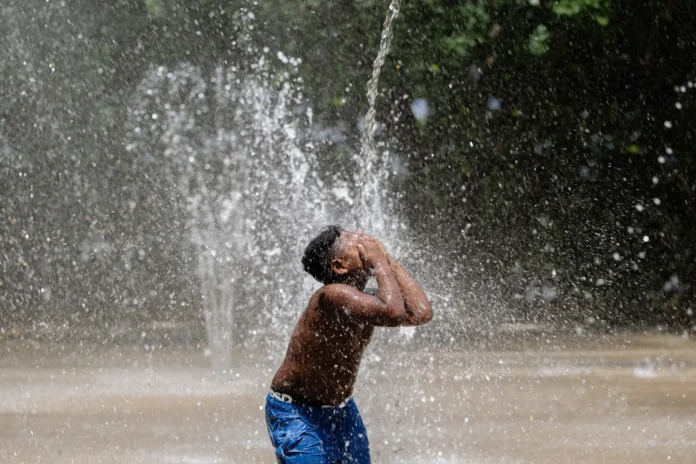Extreme temperatures are gripping the US East and Midwest, leading to health warnings and disruptions in transportation services.
This week, tens of millions of people in the Northeast and Midwest are grappling with a relentless heatwave. The soaring temperatures are placing immense pressure on power grids, causing transport delays, and raising health concerns in major urban areas.
The National Weather Service (NWS) has issued heat advisories across large parts of the eastern US, warning that “feels-like” temperatures — which take humidity into account — could reach as high as 110°F (43°C) in some regions.
The searing heat, which began over the weekend, is expected to continue throughout the week.
Nighttime offers little respite, with temperatures remaining in the low to mid-70s°F (21-27°C) in key East Coast cities—levels that pose risks for vulnerable groups.
In New York City, the forecast for Tuesday shows a high of 97°F (36°C), potentially breaking a record set in 1888.
Amtrak trains experienced delays and disruptions on Monday, as the company enacted heat restrictions after temperatures climbed above 95°F (35°C) and track temperatures hit 128°F (54°C), citing safety concerns.
Similar issues were reported in other cities along the East Coast.
Electric grid operators have alerted residents to expect peak energy demands, with many relying heavily on fans and air conditioning.
Power plants have been instructed to be ready to operate at full capacity to prevent blackouts.
Health officials are urging outdoor workers to take frequent breaks, stay hydrated, and be vigilant for signs of heat stroke or exhaustion.
“There is a disconnect between the severity of heat waves as a public health risk and how the public perceives that risk,” stated Howard Frumkin, an environmental health expert from the University of Washington.
Medical research indicates that extreme heat poses a greater threat than floods or hurricanes and is increasingly recognized as one of the most dangerous weather-related impacts of climate change.
Scientists assert that this week’s heatwave is part of a disturbing global trend.
Remarkably, Alaska issued its first-ever heat advisory last week.
Many are concerned, with questions arising about safe places to be. “The answer is probably: nowhere,” Frumkin added.
Climate risk analysts also express worries about significant economic repercussions.










